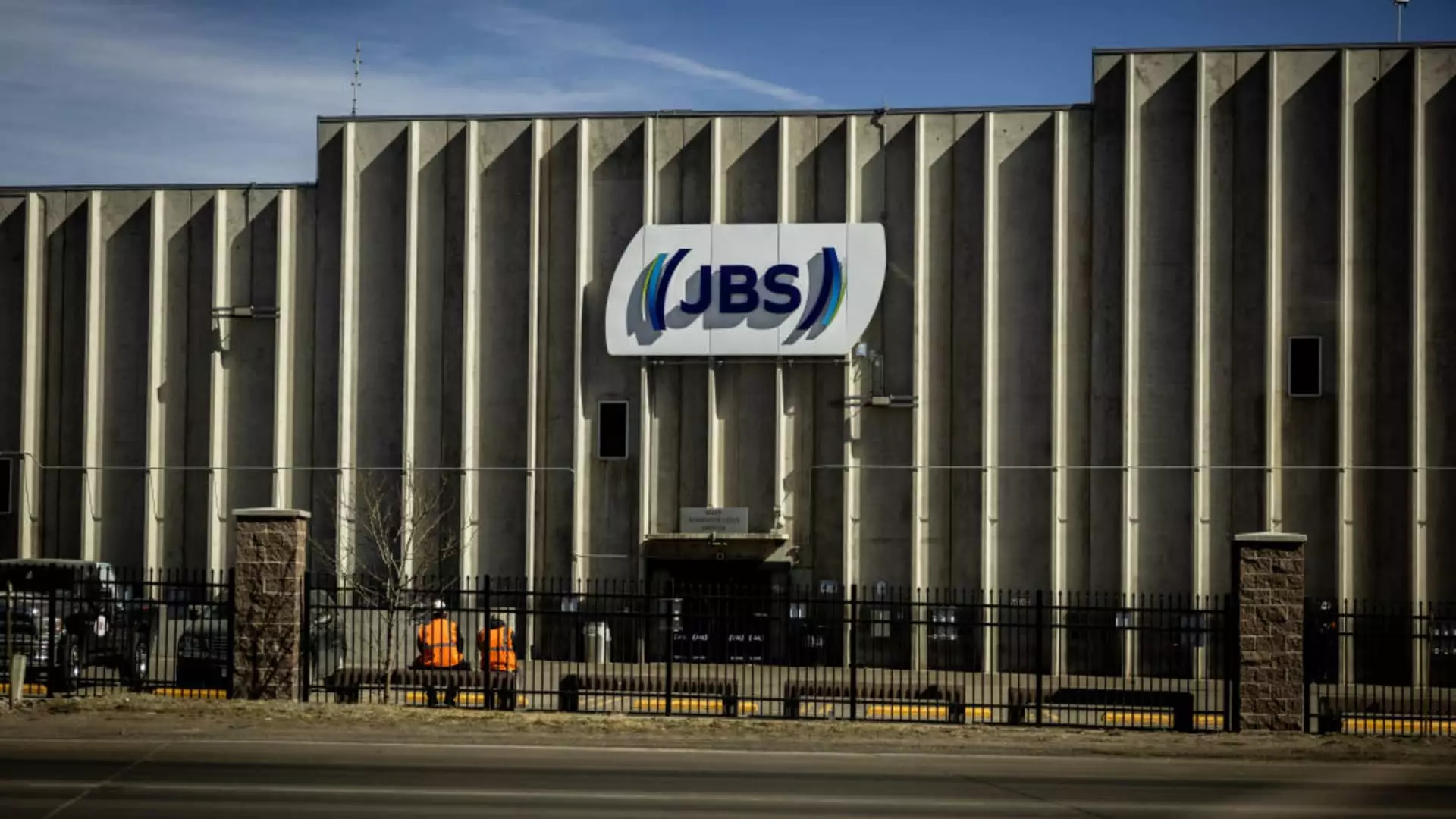In a move that has raised eyebrows across financial markets and ethical discussions alike, Brazilian meat monolith JBS made its debut on the New York Stock Exchange with an opening price of $13.65 per share, translating to a staggering market valuation of approximately $30 billion. Amidst much anticipation, this launch underscored the complex interplay of corporate ambition and moral scrutiny, highlighting the shadows cast by JBS’s troubled history. Competing chaotically with its U.S. rival Tyson Foods, valued at around $19.82 billion, JBS is not simply entering the U.S. market; it’s an arrival shadowed by a legacy of scandals, including corruption and environmental degradation.
The Path to an Uneasy Listing
The journey of JBS toward a U.S. public listing has not only been lengthy—over 15 years—but also fraught with controversy. Initially proposing to go public in 2009, the company faced two significant delays. The culmination of its efforts was marred by governmental inquiries into corrupt practices, implicating various high-ranking executives within the organization. In the aftermath, a $3.2 billion indictment battering the company raised immense questions about its ethical grounding. With such dubious foundations, one must wonder if a corporation built on dubious transactions can honestly claim to be a responsible player in the global economy.
Further muddying the waters, revelations surfaced that JBS’s leadership had a history of cooperating with prosecutors, allowing them to dodge prison sentences while major stockholders exited the company in wake of a scandal-filled fallout. Despite their return to visibility on the board, the Batistas’ participation only intensifies public skepticism regarding the company’s integrity. It is almost bewildering that investors would even consider backing a company whose narrative reads more like a thriller than a business case study.
Profit at the Cost of Ethics
JBS’s financial prowess cannot be understated; boasting a net revenue of $77.2 billion and a net income of $2 billion last year, the company’s robust numbers might dazzle some investors. However, such profit comes tainted with troubling ethical concerns. Accusations have recently emerged regarding illegal cattle sourcing from protected areas of the Amazon rainforest. An organization that finances its monstrous profits through the exploitation of natural resources is a corporate entity that should raise alarm bells for conscientious consumers and ethical investors alike.
Indeed, JBS’s actions present a stark contradiction of values in an era that has increasingly prioritized sustainability. As consumers become more aware of the origins of their food and the environmental implications of livestock farming, JBS must grapple with an unsettling image of itself that conflicts with its ambitious growth.
The Political Dimensions of Business
Moreover, JBS’s political entanglements cannot be ignored. The company’s $5 million donation to Donald Trump’s inauguration committee highlighted an intersection of corporate finance and political influence that many would deem problematic. While JBS claims to uphold a “bipartisan history,” one cannot dismiss the troubling optics of a meatpacking titan exercising such significant economic clout, especially when ethical violations have stained its reputation. This dynamic raises serious concerns about accountability and governance in sectors heavily reliant on ecological sustainability and ethical practices.
As JBS stands proudly on the New York Stock Exchange, it faces a dual reality. On one side, it embodies the triumph of capitalism, showcasing growth and economic prowess. On the other, it is a reminder of the dark alleys of corporate oversight, greed, and legal loopholes that allow morally dubious practices to persist in modern business. Investors have every right to demand transparency, ethical rigor, and environmental accountability from corporations like JBS. The question will remain: can a company basking in the glow of financial success truly evolve to align with the values of our contemporary society, or will its past continue to shadow its future?

